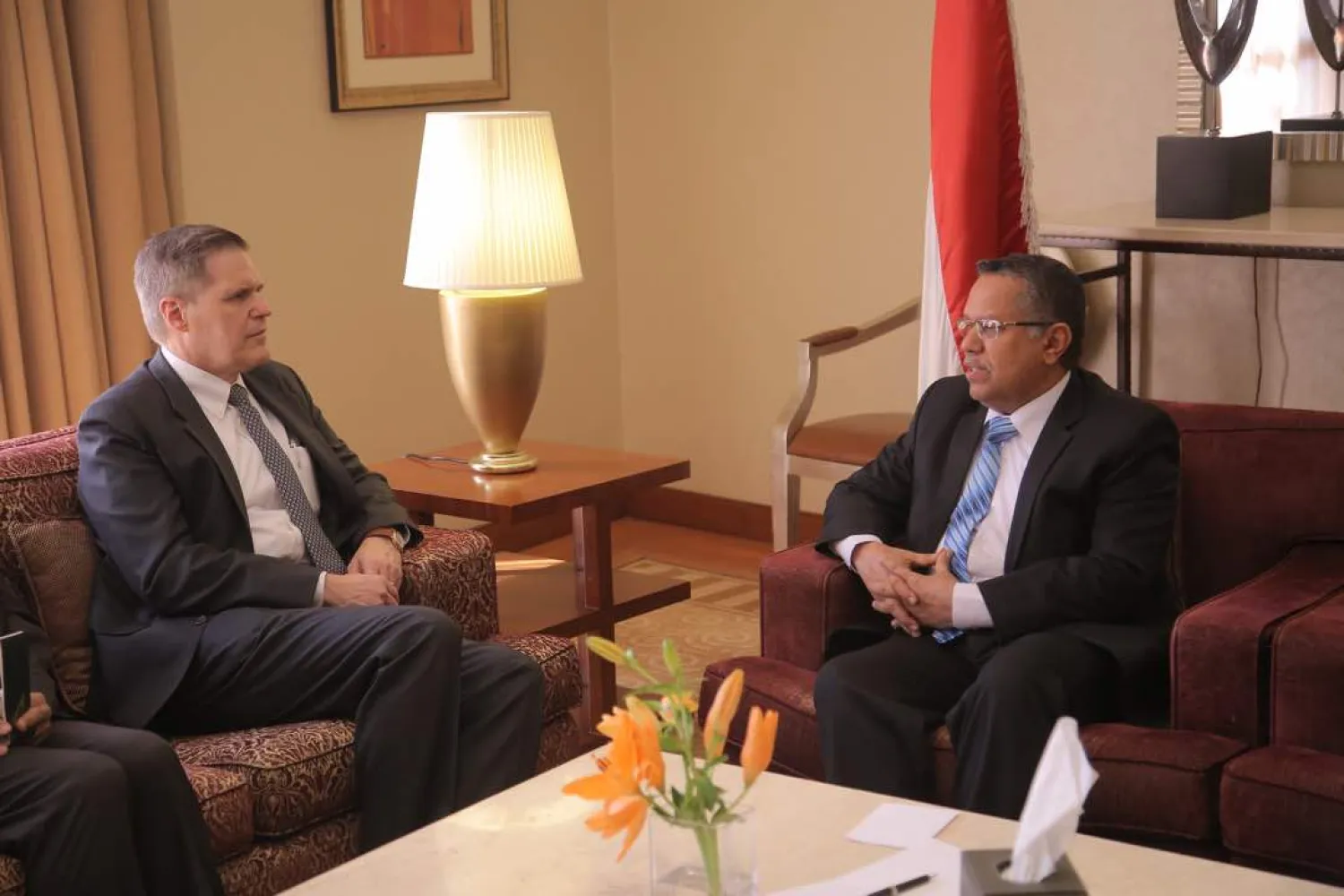Washington reiterated its unequivocal rejection of Iranian intervention in Yemen and the need for the international community to deal firmly and seriously to stop Tehran’s plans that threaten the security and stability of Yemen and the Gulf.
Yemeni Prime Minister Dr. Ahmed Obeid Bin Daghr discussed with US Ambassador to Yemen Matthew Tueller on Wednesday the latest developments in the country in the light of recent developments in Sana’a and serious violations committed by the Houthi militias to eliminate the leaders of the General People’s Congress, following the execution of former President Ali Abdullah Saleh.
The meeting focused on the continuing Iranian role in supporting its rebellion against the local will and international resolutions, stressing “the total rejection of the Iranian interference in Yemen in addition to the importance of the international community to deal firmly and seriously to stop its plans and project aiming to threaten the security and stability of Yemen, the Gulf and the world.”
The Yemeni prime minister pointed to the current developments in Sana’a, the liquidation operations and the continuing arrests against the leaders and officials of the General People’s Congress, and all those who participated in the popular uprising called for by Saleh against the Houthis.
Bin Daghr stressed that the assassination of Saleh was a clear Iranian decision to impose its sectarian project through its Houthi “agents”.
“The legitimate government has addressed the United Nations, the Security Council and the international community on what is happening in Sana’a and the need to take a stand against the crimes committed by the Iranian Houthi militias against their civilian opponents,” the Yemeni premier said.
He also expressed Yemen’s appreciation for the US “positive role” towards the Yemeni people and its continued support for the legitimate government in its efforts to restore security and stability in the country.
For his part, the US ambassador conveyed to Bin Daghr his condolences for the killing of Saleh, expressing his country’s rejection of the actions of the Houthi insurgents against the leaders, members and supporters of the Popular Congress.
He also reiterated the US condemnation of the Iranian intervention in support of the Houthis and its plans to hamper peace efforts in the country.
Washington Reiterates its Rejection of Iranian Interference in Yemen

Yemeni Prime Minister Dr. Ahmed Obeid Bin Daghr meets with US Ambassador to Yemen Matthew Tueller (Saba)

Washington Reiterates its Rejection of Iranian Interference in Yemen

Yemeni Prime Minister Dr. Ahmed Obeid Bin Daghr meets with US Ambassador to Yemen Matthew Tueller (Saba)
لم تشترك بعد
انشئ حساباً خاصاً بك لتحصل على أخبار مخصصة لك ولتتمتع بخاصية حفظ المقالات وتتلقى نشراتنا البريدية المتنوعة







